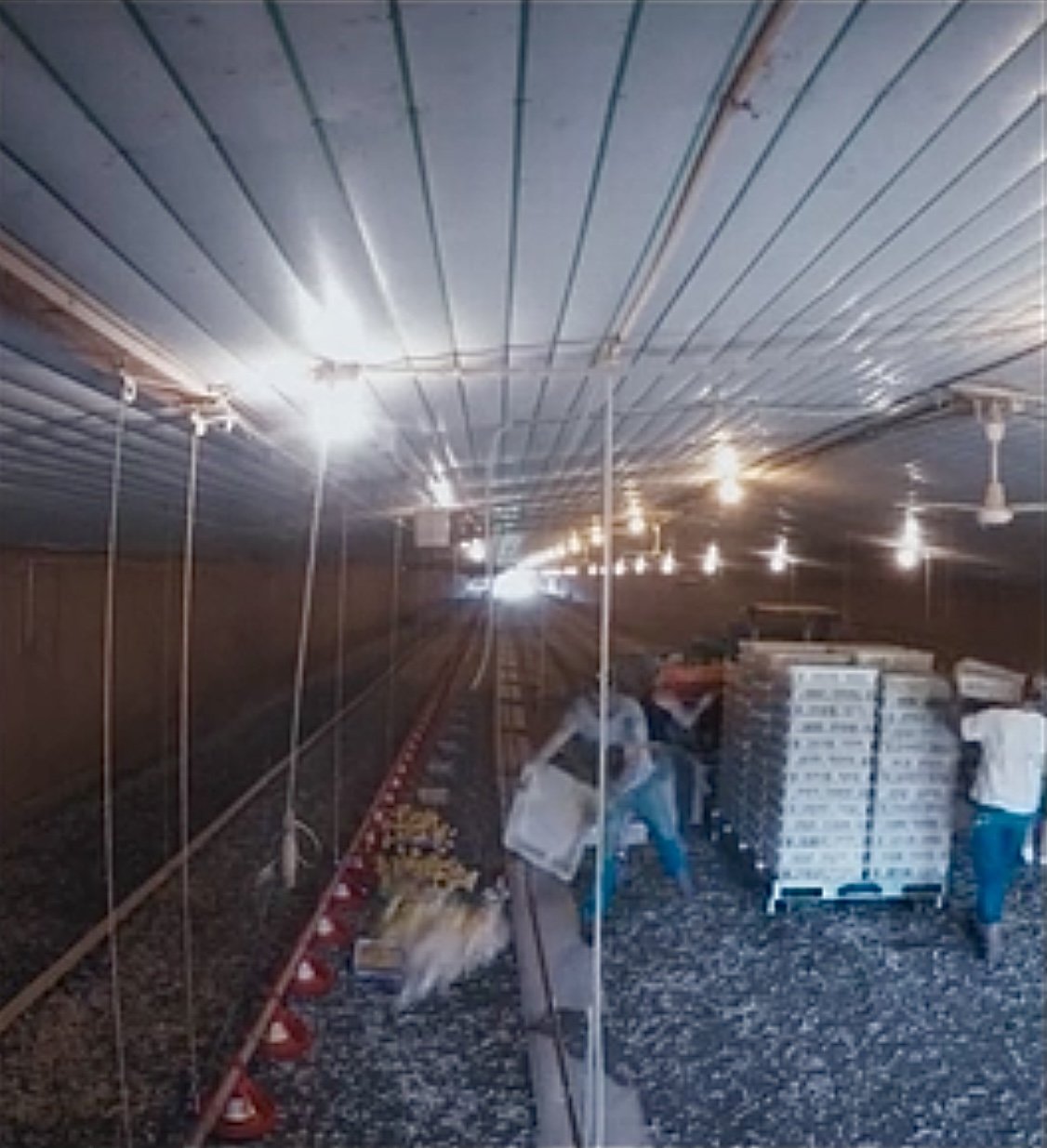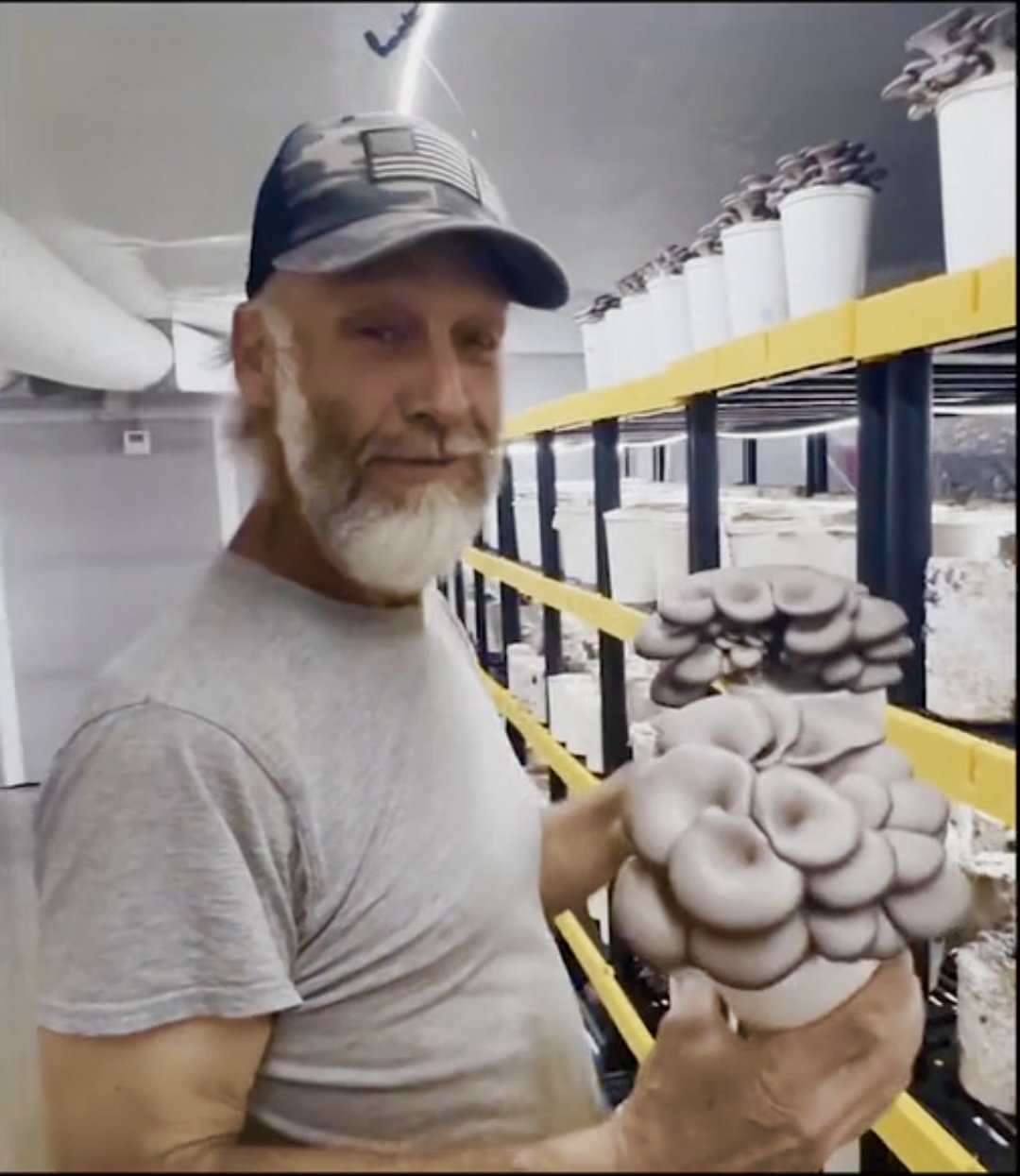By Jessica Scott-Reid
Jessica is a Canadian writer, animal advocate and plant-based food expert. Her work appears regularly in media across Canada and the US.
Farming animals is hard work. Physically, emotionally and financially, working in animal agriculture can be a struggle, leaving some farmers with mental health challenges, financial uncertainty, and even wanting out. In the UK for example, some chicken farmers “want to call it quits,” according to a recent report by The Guardian, which echoes a growing trend among some animal farmers who are looking for a new way to work.
Thankfully, there is also a growing number of organizations looking to help those wanting out of animal agriculture, to transition to more financially viable, earth-friendly, and ethically-sound farming. Rowdy Girl, a new documentary executive-produced by musician Moby, recently premiered at Hot Docs festival in Toronto and it gives us an intimate look into how one of these organizations works.
The Rowdy Girl Sanctuary in Texas is run by Renee King-Sonnen (opening photo) and her husband Tommy Sonnen (seen above). Photo: Rowdy Girl documentary
Centred around former cattle ranchers-turned animal and rancher advocates, Renee King-Sonnen and her husband Tommy Sonnen, Rowdy Girl offers a quiet and profound observational peek into the realities of rescuing both animals and farmers from the perils of animal agriculture. (Rowdy Girl is the name of a cow that Renee refused to let her husband Tommy send to the slaughterhouse, thus beginning their transition to an animal sanctuary.) Director Jason Goldman approached the couple, King-Sonnen told PFN, and “explained to us that he wasn’t interested in interviews, but wanted to capture the essence and heart of my work as an animal rights activist and rancher advocate from the perspective of being a former cattle rancher’s wife gone vegan.”
And that’s just how the film plays out, sharing from the corner of a room or from afar in a field, tough and tearful conversations with ranchers and farmers, along with moments of joy with those who have moved to new, plant-based farming.
In one particularly poignant scene (photo above), former chicken farmers Jennifer and Rodney Barrett, stand with mushroom farming expert Denis Vidmar, in a large empty shed once packed with birds, discussing methods of light manipulation they once used to increase the animals’ growth. “So we torture them and then put them on a plate,” says Vidmar. “This will go from a torture chamber to a life chamber, once we start growing mushrooms.”
The film ends with a powerful juxtaposition of shots from within that shed (see above), showing baby chicks once being carelessly unloaded into the space, as we hear their panicked cheeps, versus Rodney Barrett today, walking into his mushroom farm flourishing in the quiet and clean, state-of-the-art space.
The purpose of King-Sonnen’s Rancher Advocacy Program is to “encourage farm transitions by bringing investors, resources, academics, filmmakers, authors, attorneys, lobbyists, and other plant-based and manufacturing experts to the table,” according to the site. It’s where animal farmers can turn when they want to make a change.
Former chicken farmer Jennifer Barrett (left) was supported by the Rancher Advocacy Program founded by Renee King-Sonnen (centre) and guidance from mushroom farming expert Denis Vidmar (right) in transitioning their family farm to a mushroom farming operation. Photo: Rancher Advocacy Program
And it’s not the only program of its kind. The Farm Transition Academy also helps animal farmers and industry workers transition to alternative farming practices, along with aiding animal advocates in farmer outreach methods; Mercy for Animals’ Transfarmation Project, “partners with farmers to help them transition to plant production and then connects them with businesses in need of their products,” according to its site; and Stockfree Farming, based in Scotland, works with farmers in that region to transition to animal-free agriculture, and more.
Beat and Claudia Troxler with some of their cows at their farm animal sanctuary in Lucerne, Switzerland. Lebenshof Aurelio is a former family dairy and pig farm that became a vegan farm and farm animal sanctuary with the help of Sarah Heiligtag's "Transfarmation" project in 2020. Photo: Sabina Diethelm / We Animals Media
There are even individual efforts being made to help animal farmers move away from the business. A recently released short film by We Animals Media (WAM), Transfarming Switzerland, showcases the work of Sarah Heiligtag, who has helped transform more than 100 Swiss animal farms into vegan farms and sanctuaries, “by working directly with farmers who seek a different relationship with animals,” according to WAM.
But as Farm Transition Academy co-founder Meira Geyser explains, one of the biggest barriers to these efforts is funding, and in particular dealing with existing debt. “There are (other transition-focused) organizations in Europe that have more farmers who want to transition than they can take on, because these farmers are in so much debt, and the big question is always where is the funding going to come from?” Geyser says currently, community fundraising, grants in some regions, and some philanthropic initiatives are helping move farmers out of animal agriculture.
But she’d like to see more, including rerouting some of the massive government subsidies and bailouts typically offered to animal farmers, towards those who want to transition to plant farming. “I’d also like to see more people knowing about this, so it could get to more philanthropists and celebrities and those companies already donating to environmental organizations, and to see it more in the media.”
A Texas rancher brings one of his calves, born prematurely and abandoned by his mother, to his forever home at Renee’s animal sanctuary. Photo: Rowdy Girl documentary
“Transitioning from animal farming to plant-based farming is a huge endeavour and one that should not be taken lightly without a good source of funding,” adds King-Sonnen. She says she is optimistic and hopeful for the future of farm transition, “but it is not for everyone until the United States government steps in to help farmers that want to move away from animal agriculture.” Currently, she says, animal farmers are given “egregious subsidies, bailouts, and insurance dollars” to keep them “‘sustainable’ and ‘making money,’ and they do not afford these same farmers assistance if they want to leave animal farming in lieu of a plant-based farm.”
Renee and some of her friends. Photo: Rowdy Girl documentary
While she calls herself an “idealist and a visionary” who can “clearly see that farm transition is the future,” King-Sonnen realizes that “we cannot depend on non-profits and private funding to make these shifts—that will never be sustainable.” Rather, she advises that to truly help transitioning farmers scale, to be profitable, “and maintain their dignity, then we must all appeal to our local and state governments so that our collective voices can be heard in the United States government,” and beyond.
She calls it her “greatest hope, that our movement will together figure out a way to create models for farm transition that are scalable, sharable, and profitable for farmers that truly want to get out of animal agriculture once and for all.” She believes every farmer deserves choice about what they farm, “and farming animals is a backwards, non-sustainable industry that is killing us all.”









